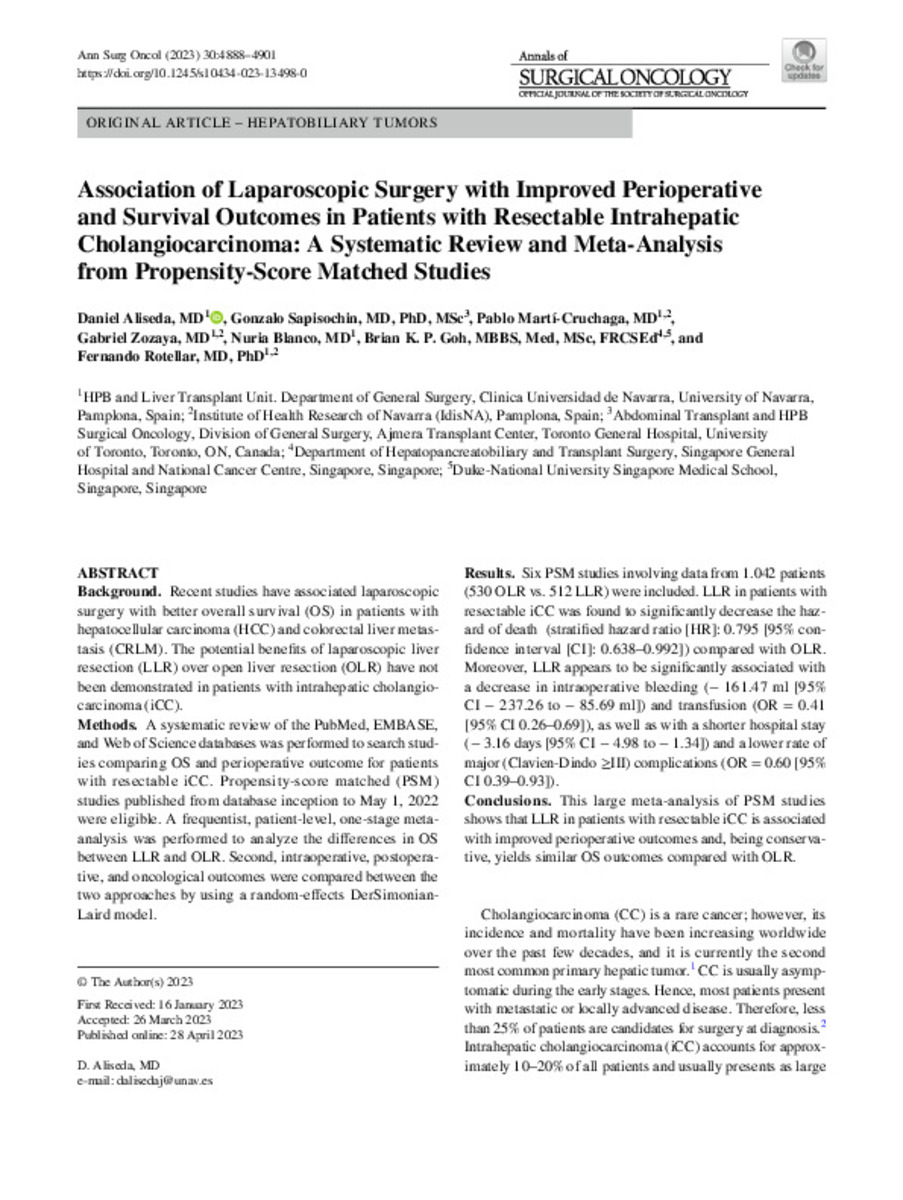Association of laparoscopic surgery with improved perioperative and survival outcomes in patients with resectable intrahepatic cholangiocarcinoma: A systematic seview and meta-analysis from propensity-score matched studies
Palabras clave :
Materias Investigacion::Ciencias de la Salud::Oncología
Materias Investigacion::Ciencias de la Salud::Medicina clínica
Materias Investigacion::Ciencias de la Salud::Cirugía
Laparoscopic surgery
Resectable intrahepatic cholangiocarcinoma
Fecha de publicación :
2023
Nota:
This article is licensed under a Creative Commons Attribution 4.0 International License
Cita:
Aliseda, D. (Daniel); Sapisochin, G. (Gonzalo); Marti-Cruchaga, P. (Pablo); et al. "Association of laparoscopic surgery with improved perioperative and survival outcomes in patients with resectable intrahepatic cholangiocarcinoma: A systematic seview and meta-analysis from propensity-score matched studies". Annals of Surgical Oncology. 30 (8), 2023, 4888 - 4901
Aparece en las colecciones:
Estadísticas e impacto
0 citas en

0 citas en

Los ítems de Dadun están protegidos por copyright, con todos los derechos reservados, a menos que se indique lo contrario.







